I moved from Mexico to Spain last year. Here are 8 things that have surprised me the most, and why I love living on the coast in Valencia.
Jennifer Fernández Solano

- I moved to Spain last year from Mexico. Since then, I've been surprised by how different it is.
- My lifestyle is healthier in the Spanish city of Valencia thanks to affordable outdoor activities.
After growing up in Mexico and living in places like Mexico City, Australia, France, and Italy, a year ago, I moved to Valencia, a city on the southeastern coast of Spain.
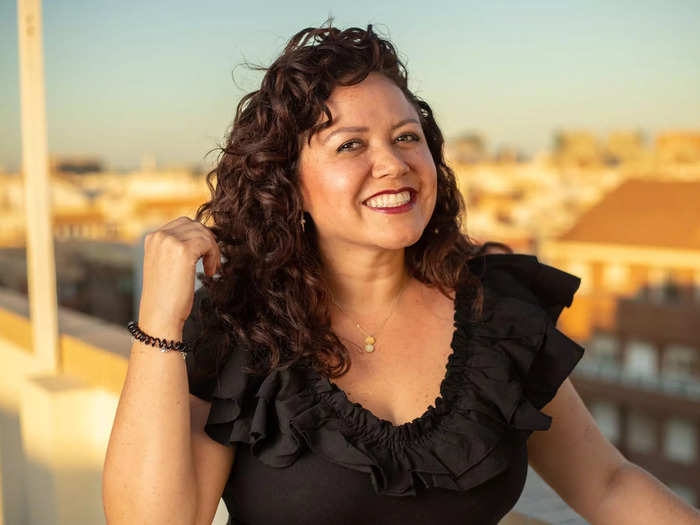
I grew up in Mexico City, and lived there for most of my life. I love my home country, but as a travel writer, I also love the experiences of living and traveling abroad. So far, I've spent six years in Australia and one year in France, plus a few months off and on in Italy.
I then came back to my hometown of Mexico City, where I lived for eight years before I once again, craved a new adventure. When deciding where to go next, I chose Valencia, Spain. I already had friends in the Spanish city; when I first visited them in 2019, I fell in love with the city's never-ending summer weather and beachy atmosphere.
When I considered moving there, I wondered if I'd like it given that the city has just over 800,000 people compared to Mexico City's 22 million. However, I now love the more relaxed feel and Valencia has exceeded my expectations.
After a year, I'm still discovering more about my current home base, but nine things in particular have surprised me the most.
I was surprised to find that I've been leading a healthier lifestyle in Valencia thanks to affordable gyms and outdoor fitness classes.
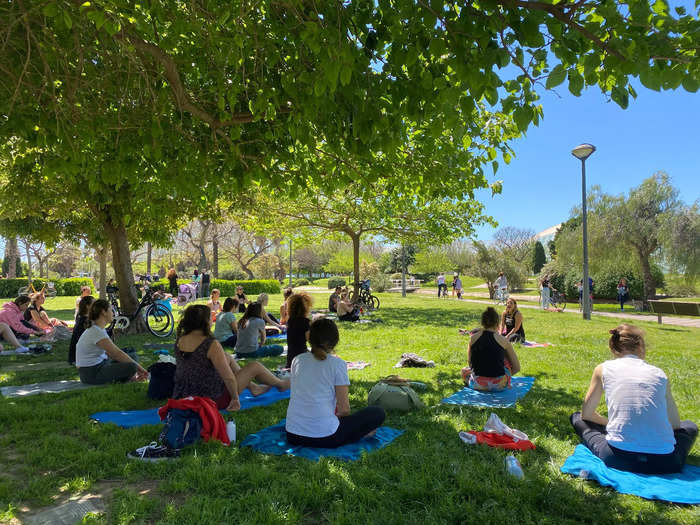
When I lived in Mexico City, I didn't always walk as much as I hoped because the city was so hilly.
But when I moved to Valencia, I found my lifestyle became much healthier. Compared to CDMX, Valencia is more flat and walkable, so if I'm going somewhere within a 30-minute walk, I'll go on foot and get in more physical activity whereas I might have hopped in a car in Mexico City.
I also find that gyms and exercise sessions are cheaper than what I'm used to, so I hired a personal trainer twice a week because it now fits within my budget.
Valencia's sunny weather also makes it easy to want to be more active. There are beautiful parks, like Turia Gardens, which winds through the city along an old river bed. The first time I visited, I was amazed to see several outdoor fitness classes taking place in the park.
I joined a Sunday yoga class, which cost five euros, and I've also seen Zumba, barre, and African dance classes on different evenings, which you can sign up for by approaching the instructor of the class.
In Valencia, I see senior citizens everywhere simply enjoying life, which I never noticed in CDMX.
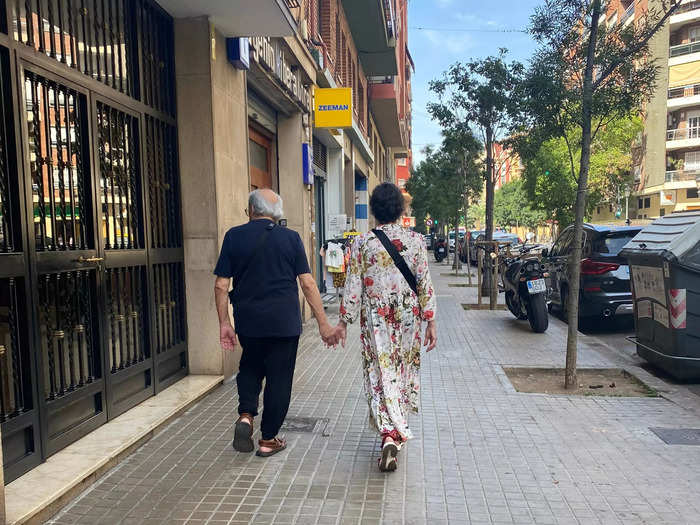
I read that people in Spain have some of the longest life expectancies in the world, at an average of 83 years as of 2021, according to Our World in Data. This has in turn has led to an aging population, especially compared to Mexico, where the average life expectancy is 70 years, as of 2020.
When I first moved to Valencia, I noticed that I saw more senior citizens throughout the city than I was used to seeing in Mexico City. Perhaps I just didn't observe it as much in my hometown with such a larger population, however in Valencia, I regularly see older people out visiting a park, shopping, or stopping at a café in the morning.
I think it's nice to see around town, and I appreciate that senior citizens are more a part of the city here.
I was surprised to learn that some food items that I thought were Mexican actually aren't.
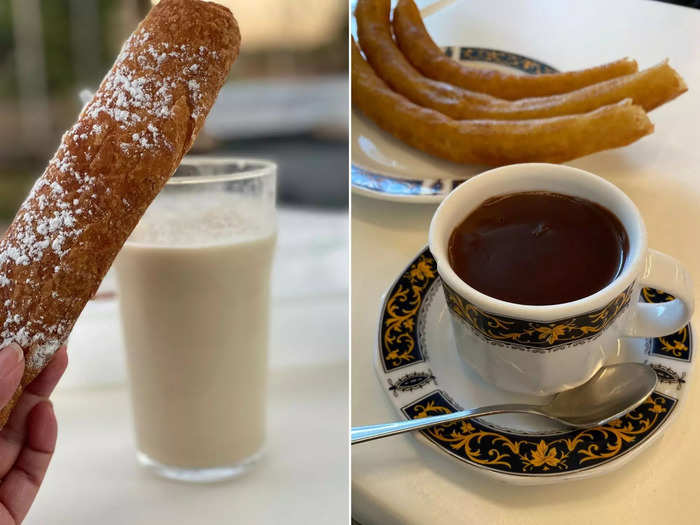
When I moved to Valencia, I was excited to see several of my favorite foods that I've loved all my life, such as albóndigas, or meatballs, listed on restaurant menus.
But I was surprised, too, because I'd always considered them to be a homemade Mexican dish. After doing some research, I learned that albóndigas are said to have come from the Andalucía region of Spain, passed down by the Arabic influence in the area, according to The Boston Globe.
I was also taken aback when I saw fruit-shaped marzipan in Valencia. I thought these painted almond-based bites were from Mexico because they're everywhere in my home country, but instead, I learned the origins are more complicated. An early version of the sweet is said to have been brought to Europe from the Middle East many centuries ago, according to Delighted Cooking, and it's popularity grew with different renditions. Today, cities in Spain, Italy, and Germany claim the dessert's local significance, according to the Institute for Culinary Education.
Valencians also have their own horchata, which I discovered is different from the Mexican version I'm used to because it's made with tiger nuts instead of rice. A family friend who is Valencian told me the local custom is to dunk a pastry, called a farton, in the horchata, and it's commonly eaten as a merienda, the local term used for a light evening snack.
I'm still surprised by how often we eat paella in Valencia, and I didn't previously know it's only eaten at lunch, and never for dinner.
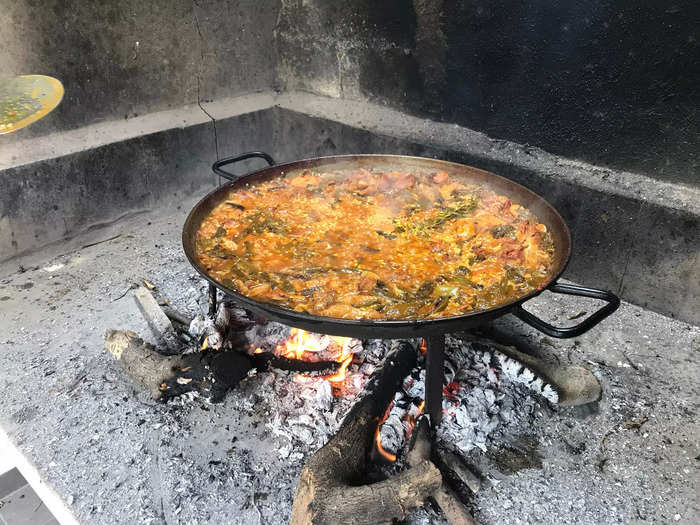
I knew Valencia was considered to be the birthplace of paella, a popular rice dish, but I'm still surprised by how often Valencians cook it or order it. I find that it's served at family gatherings, celebrations, or simply for Sunday lunch. I have invitations to eat paella at least once a week, if not more.
I've also learned a lot about paella since living in Valencia including a local unwritten rule: paella is only eaten at lunch, and never for dinner.
This is because the dish originated from farmers who cooked the rice-based dish for midday meals. Local friends told me that exceptions are made during certain festivals, but typically it's only eaten for the midday meal.
Another fun fact I've learned about paella is that it should be eaten straight off the paella dish with a spoon, and shared with family and friends, just as it would have been shared among the farmers. I was taught by local friends to only eat the portion that's straight in front of me — it's not considered polite to go picking pieces of meat from your neighbor's side of the pan.
I've learned that restaurant reservations are a must for dining out in Valencia.
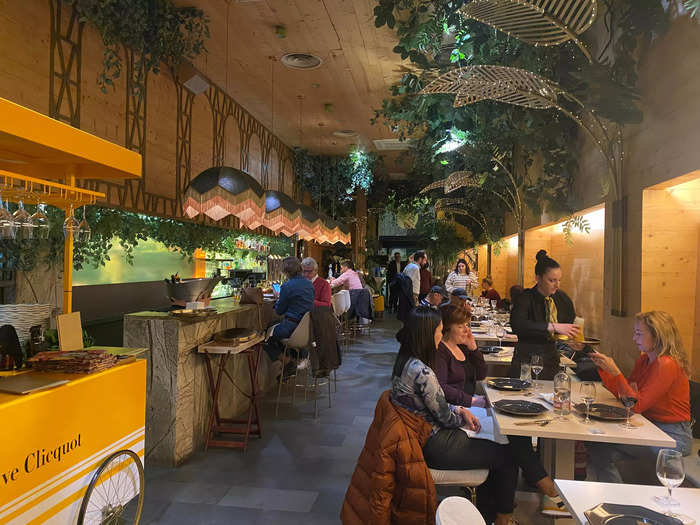
In my experience, reservations are key if you want to go out to a restaurant in Valencia and eat well. Without one, my choices living here usually end up between eating at a fast-food place or a tourist trap, which wasn't my experience in Mexico City.
When I first moved here and had friends visit, we were often turned away as walk-ins since restaurants were fully booked, even more casual options. A few times, I've been lucky enough to show up at a good restaurant without a reservation and still get seated, but only if I'm alone or in a party of two.
Now when I'm planning dinner with a group of friends, I'll book our reservation at least a week in advance. In terms of the more popular, high-end restaurants, I've had to book those weeks or even months ahead of time. I made reservations about a month ahead for dinner at local chef Quique Dacosta's Llisa Negra when my parents visited, and did the same to eat at his other restaurant Vuelve Carolina with a friend.
My Valencian friends are surprised when I have a cocktail with my meal.

In Mexico, I would typically order a beer or wine, cocktail, or even a shot of tequila or mezcal to go with lunch or dinner. And it was never considered out of the ordinary among CDMX locals like me.
But now, living in Valencia, Spain, I find that wine or beer are the only two alcoholic drinks that my local friends consume with a meal. They told me it's just not culturally common to drink mixed drinks with lunch or dinner.
In Spain, I've noticed that even the heaviest of drinkers won't order liquor-based drinks with their meals, and I find it funny how my friends are always shocked when I order a gin and tonic to go with my mine. I always explain that I don't like mixing alcoholic drinks, so if I know we'll be drinking cocktails after lunch, I prefer to have one with my meal instead of wine.
I love how friend groups in Valencia all chip in to buy birthday presents, and didn't expect it.
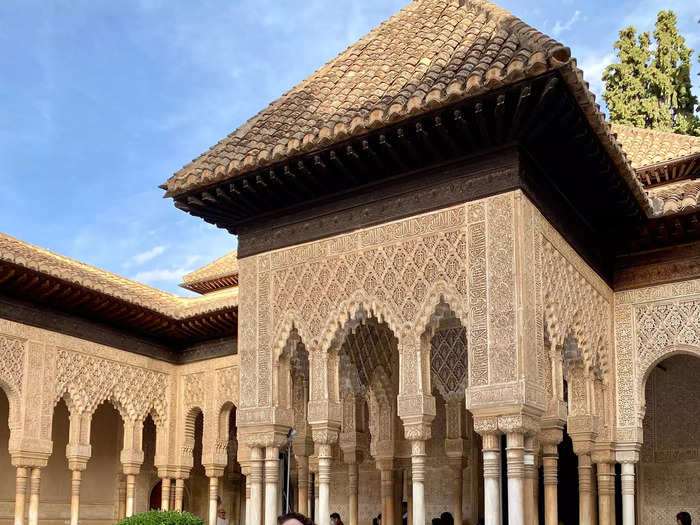
Based on my experience of living in Mexico for most of my life, I've found it's more common for people to buy smaller gifts separately for a shared mutual friend's birthday.
However, in Valencia, I've noticed that friend groups band together to buy a more expensive gift for someone's birthday, rather than buying smaller gifts individually.
And after moving here, I've come to prefer the Spanish way.
The first time I went to a birthday party, I was impressed by how generous the gifts were, and a friend explained to me that it was because everyone chipped in. Since then, I've chipped in five, 10, or 15 euros for birthday gifts for my different friend group. I also received generous gifts from friends on my own birthday, despite only having lived in the city for a few months at the time.
I've had to go out of my way to find movies in their original language, as I was surprised to find that many movie theaters are dubbed in Spanish.
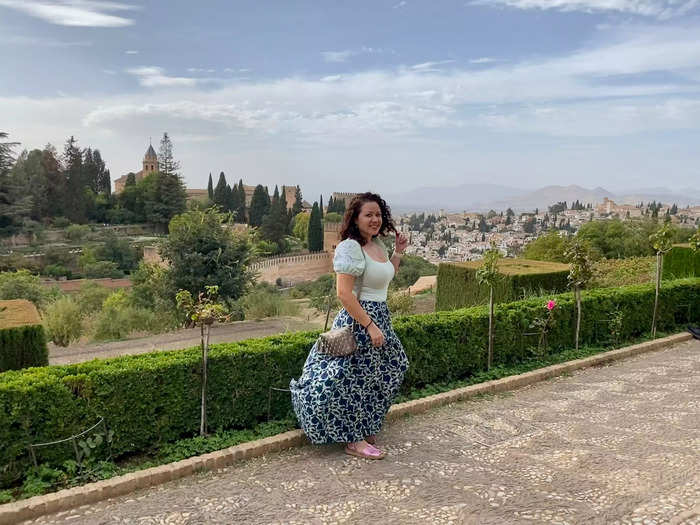
I enjoy going to the movies but didn't know before moving here that it would be difficult to find cinemas screening films in their original language.
I've noticed that in the majority of the theaters I've been to around Spain, movies are mostly dubbed into Spanish rather than kept in their original language. That's not the case in Mexico, where I was used to watching movies in English, or the original language with subtitles in Spanish.
In terms of watching shows at home in Valencia, my local friends also prefer to watch series dubbed in Spanish.
I'm not sure why that is, but I personally can't get used to watching movies or shows dubbed into Spanish, especially if I'm already familiar with the voice of a famous actor who's been dubbed over.
Luckily, in Valencia I've been able to see movies in their original language at Cines Babel, a small movie complex that shows movies with subtitles in Spanish instead of dubbing them.
Popular Right Now
Popular Keywords
Advertisement